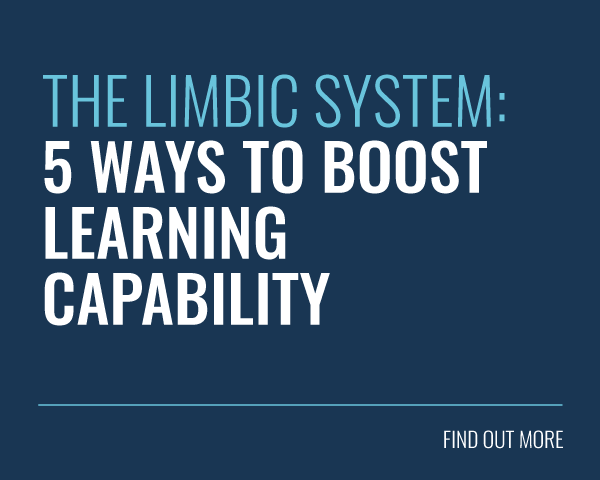
Encouraging curiosity in the workplace is a major challenge these days.
Aside from the office cat, most employees are quite content getting on with their jobs and leaving it at that. Yet, curiosity to learn is powerful. In fact – Harvard Business School describes it as ‘vital to an organisation’s performance’.
If you’re a truly curious soul, you’ll be asking ‘what is curiosity?’ You might even be asking ‘what is the value of curiosity in the workplace?’ or ‘How can I demonstrate curiosity and build an organisational culture in which curiosity is encouraged?’ Admittedly that last question is somewhat less likely…
What is Curiosity?
It’s the desire to answer that stubborn question in the back of your mind…What if? What if I could be something more than I am now? What if that idea could work? What if, together, we could change the world? What if a man were to walk on the moon? What if I sing ‘I’m singing in the rain’ when it isn’t actually raining? What would happen? Seriously – these are the big questions.
These questions have driven humanity forward for thousands of years (particularly the last one). Curiosity compels us to try, learn, invent and reach for the stars.
I can vouch for this because it was curiosity that inspired my love for all things online learning and to set up my own business – Growth Engineering! I may not have reached the moon yet, but I and my awesome team of superheroes have come along way since working out of my cramped basement 14 years ago! It’s all thanks to a little curiosity (and a lot of coffee!).
When did you last feel curious? What if you follow your curiosity?
I believe when we dare to follow our curiosity, we step out of our comfort zone. It’s here where the real learning happens. So, whether it’s inspiring us to pursue our goals, try new things or simply fuel our Netflix binge – curiosity makes us dream, venture into the unknown and discover our passion.
This is why it should be at the heart of any strong learning culture. It’s time to create curious organisations that boost employee happiness, innovation and learning at work! Let’s find out how…
How Does Curiosity Make You Feel?
We all know how curiosity feels, it’s the infuriating but irresistible feeling we get from a good cliffhanger or the excitement before we try that new Ben & Jerry’s flavour! It’s that sense of flow we feel when we’re engrossed in our work or throwing ideas around in the ultimate brainstorming session (Hollywood glass board optional!). Put simply, it’s a strong desire to learn. 
Yet, how exactly is curiosity created? Why do some things get us as excited as hearing there’s a real-life talking axolotl called Gavin and he works in accounts down the hall, whilst others leave us nonplussed?
The Information Gap
Curiosity is partly down to what Psychologist George Loewenstein termed “The Information Gap Theory.” Intrigued? Well, this theory states curiosity is triggered when we become aware of a gap in our knowledge. It’s that feeling that we are lacking essential information that matters. It’s like you’re getting FOMO for knowledge!
I Type Curiosity
Another, powerful form of curiosity is I Type. This describes the sense of mystery, intrigue and wonder that makes life that little bit more beautiful. It can be that feeling when we look at the stars and wonder what’s really out there. I Type is a strong motivator because it is about our desire to discover rather that a need to know. Therefore, it is often the fuel for that all-important informal learning.
How to Encourage Curiosity in the Workplace
The last thing you’ll want is an office full of people lacking curiosity. That can sap any sense of excitement and even erode an organisation’s ability to innovate.
When we embrace curiosity as individuals or businesses, we choose to think a little differently, challenge the norm and venture into the unknown.
Here are 6 reasons why you need to make curiosity a part of your company culture. Let’s get curious!
1. Employee Happiness
Is your company a ‘curious’ organisation? Putting curiosity at the heart of your organisation helps boost employee wellbeing. Research shows 85% of respondents in ‘curious’ companies said they were happy at work compared to just 45% in the ‘non-curious’ organisations.
This isn’t too surprising – we all know that awesome feeling of learning something new. So, we need to create more opportunity for these air-guitar-worthy moments at work. With happy employees being 12% more productive, a little curiosity is worth the effort!
2. Discover Passion and Purpose at Work
Establishing a deep sense of purpose, or Epic Meaning is an important part of keeping staff engaged throughout the employee life cycle. How’s it done? Start with the power of ‘what if’. We learn and remember things better when we discover them for ourselves. So rather than simply telling your staff why they matter, encourage them to ‘get curious’! Provide opportunities through informal learning, to explore how they personally feel about the company’s vision and values. By discovering Epic Meaning for themselves employees will be more likely to embrace the company mission and understand how they make a difference.
Why not use a personalised learning app to build curiosity? You could use the Question-A-Day feature to push open-ended questions that get staff thinking about their day job a little differently. The questions can be as subtle or obvious as you like, so long as they trigger curiosity and a journey of discovery! “What do you love about your job?”; “Name one thing you learned today?”; “What would you like to achieve next month?”
3. Supports Employee Learning & Development
Research shows that feeling curiosity improves our ability to learn and retain information. A sense of intrigue primes the brain for learning because it signals that something important is about to happen – something worth remembering! Our mind gets fired up to log whatever vital, previously unknown, information comes next!
This is why it’s so important to create a company learning culture, filled with opportunity for discovery. Online learning is a great place to start. Whatever form employee training takes, make sure it piques your learners’ interest to engage them with the content. You could ask questions to get your learner’s thinking about how the content relates to them personally. You can also drop hints about content as part of a learning campaign, to build anticipation.
4. Social Learning
When we discover something interesting, exciting or just downright hilarious, we want to talk about it…a lot! The potent relationship between our desire to share and our curiosity is what has us regularly checking our smartphones or clicking that funny cat video!

You can tap into the power of social by encouraging learners to share what they learn on the LMS message boards. This spreads interest in the training throughout the organisation by raising employees’ awareness of ‘knowledge gaps’ they need to fill! What’s more, by communicating about their skills and knowledge, employees can learn from each other through informal learning.
5. Improves Innovation
Simply thinking a little differently about life gets our creative juices flowing. Let’s try it! I challenge you to think of a brand new mythical creature, from two existing real-life animals. What is it? How would it survive? By simply asking a few random questions we have already taken our minds in a completely different, creative direction. Curiosity fosters creativity!
Our minds have so much potential to think differently. All we need is a little encouragement. As leaders and managers, we need to encourage the same opportunities for creative thought and expression within our workforce, to keep innovation levels high.
6. Social Connection
Finally, a point that’s close to my heart – friendship at work. Close connections at work are extremely important for many reasons, primarily employee happiness and engagement. Yet, we could sit opposite the same person for years and never really speak to them.
To create close bonds, we need to want to get to know our colleagues better. It’s easy to assume we have little in common with colleagues… That is until we discover their specialist subject on Master Mind was Morgan McCall – Bulls-eye, a fellow L&D nerd! If you don’t ask you won’t know.
The LMS social features create the perfect place for staff to find out more about each other. So, spark a little curiosity by getting everyone to share ‘5 Fun Facts’ about themselves or post a selfie with that unicorn they saw on the high street! Encourage staff to learn about each other and discover shared passions, wherever or whenever curiosity compels them!
—————————————————–
I hope these insights have shed some light on the vital role curiosity plays in creating organisational change. These themes and more are explored further in my upcoming book Unleashing Superheroes. Curious? Sign up to our blog below to stay up to date on all the juicy details.
P.S. Still wondering what my mythical creature would be? It’s a Cockapoonicorn, of course – a unicorn crossed with a Cockapoo. Who wouldn’t want a super cute unicorn that can fetch a ball on its horn?!








